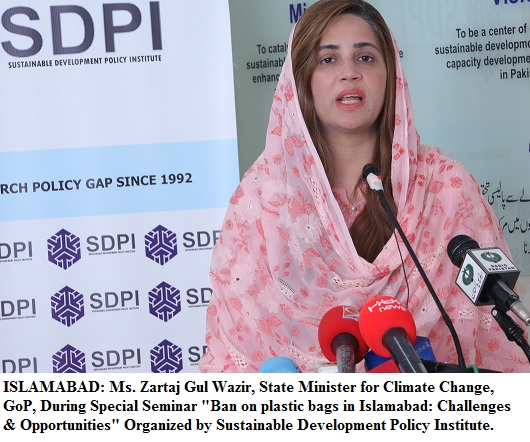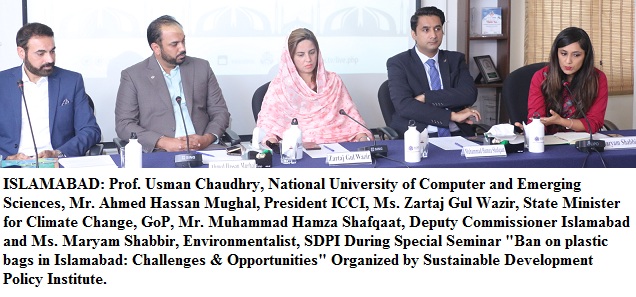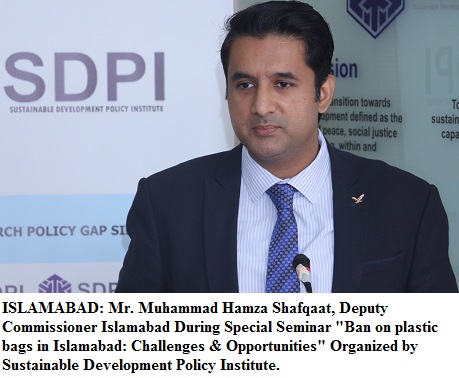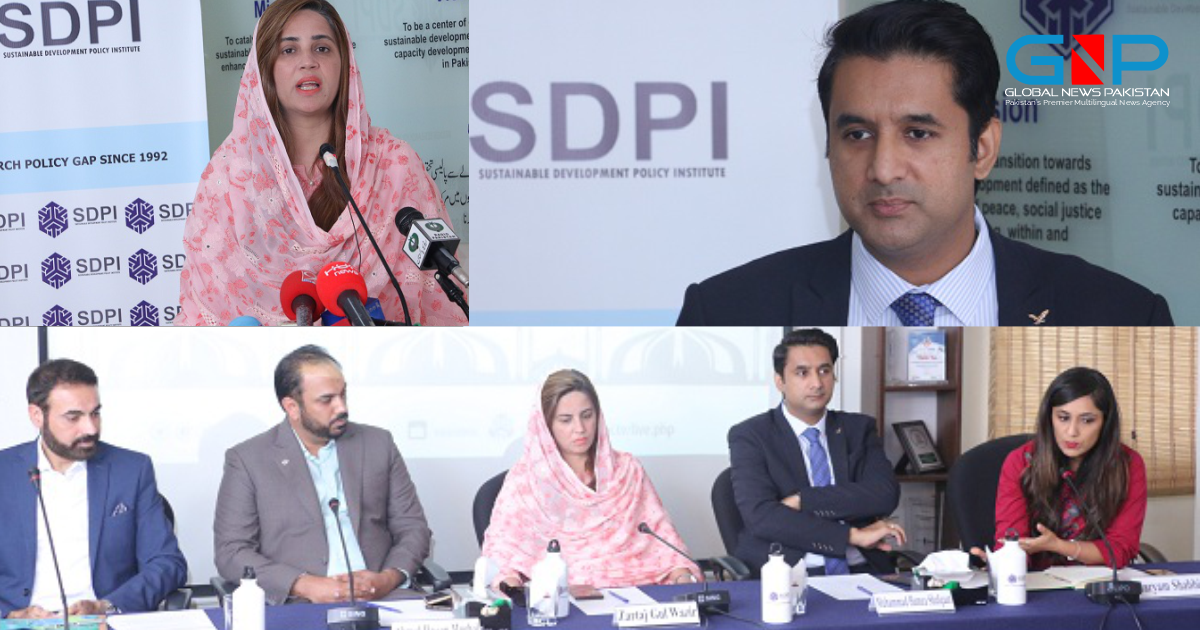ISLAMABAD: 19th August 2019- There is a time to act now to get rid of plastic bags to make environment clean and the capital live-able. The citizens should support the efforts of the Islamabad Capital Territory administration to implement its orders to ban sale and use of plastic bags since the 14th of August and ‘say no to plastic bags’ when they shop.
This was the crux of the seminar on ‘Ban on plastic bags’ organized here on Monday by the Sustainable Development Policy Institute (SDPI). Speaking on the occasion, the Minister of State for Climate Change, Ms Zartaj Gul said the government is determined to continue with its anti-plastic bags drive unabated and will lift burden of plastic from society. This will help us to be climate resilient. Islamabad is a test case and we need to work on behavior change. We need to use alternative bags made of clothes and other non-plastic material as our ancestors used to do for long.
The minister said that we should learn from urban flooding due to choking of the drainages because of the plastic bags. Why are we shying away from cleaning ourselves? We have conditionally allowed companies to use plastic bottles and they have been instructed to share with the government their recycling plans. She appealed to everyone that where there is no ban the people at least start changing their behavior and mindset on use of plastic. She said Media and civil society can help to strengthen ‘Say no plastic bags’ campaign. We love to park our cars under a tree but we do not bother to plant the trees at first place. The government in consultation with all the provinces is promoting the concept of clean and green Pakistan, the minister added.
Deputy Commission Islamabad Hamza Shafqaat said the administration has banned all kinds of plastic including plastic bottles and wrappers containing food items. The clean and green campaign is being jointly run by various ICT departments. Banning plastic bags was just an initial step towards clean and green campaign. We now have an implementation mechanism since the 14 August launch of the plastic ban campaign; those who so ever will buy or sell plastic bags will be fined heavily up to Rs.5000. We have seen a panic from some vendors who have taken stay orders from the honourable high court against this policy. But It is good that 50-60% markets in Islamabad have cooperated with the campaign realizing that plastic bags are not good to use.
Talking about the implementation plan, the Deputy Commissioner said that we have divided Islamabad in 7 zones. We will Identify places and gather evidence on sale and use of plastic bags. He said the people will be given a choice to buy bags to take care of that and re use it so that plastic bags in circulation are reduced. This has been allowed to the people so that they should not depend on cloth bags donated by the government. He said It is not a challenge that we cannot overcome. He hoped that in the next 45 days, through our aggressive awareness campaign and cooperation of the people and vendors, we will try that plastic bags are not seen in Islamabad.
Prof Usman Zafar Chaudhry called for the need to involve youth to support ‘say no to plastic bags’ campaigns saying plastic bags, emission and pollution a matter of concern for all members of society and we are already late in combating waste. We are reactive but not proactive, which does not help societies develop. The funding out of Corporate Social Responsibility (CSR) from industry needs to be prime focus to support initiatives such as ‘say no to plastic bags.’ He quoted the initiative taken by the students of Fast University who formalized a cleaning drive at the university and then extended it to G9 Park and involved local residents. He said Radio Pakistan aired two shows which reached out to people on the same day the plantation drive convened. He said community engagement is important in such drives to keep neighborhoods clean. We should aim to have competitions of lawns or societies, he added.
Ahmed Hassan Mughal from the Chamber of Commerce Islamabad said that it is a good initiative; however, no country has completely banned plastic bags. A big issue is that duty on import of plastic is low. He said the law to completely ban will affect business such as paper industry and a large number of people employed in this sector will be jobless if we completely abolish it. Similarly, it will affect other sectors too. He raised a question as to how does the government aim to help those who will be impacted through alternate solutions? He suggested that we need to work together otherwise this policy will fail.





